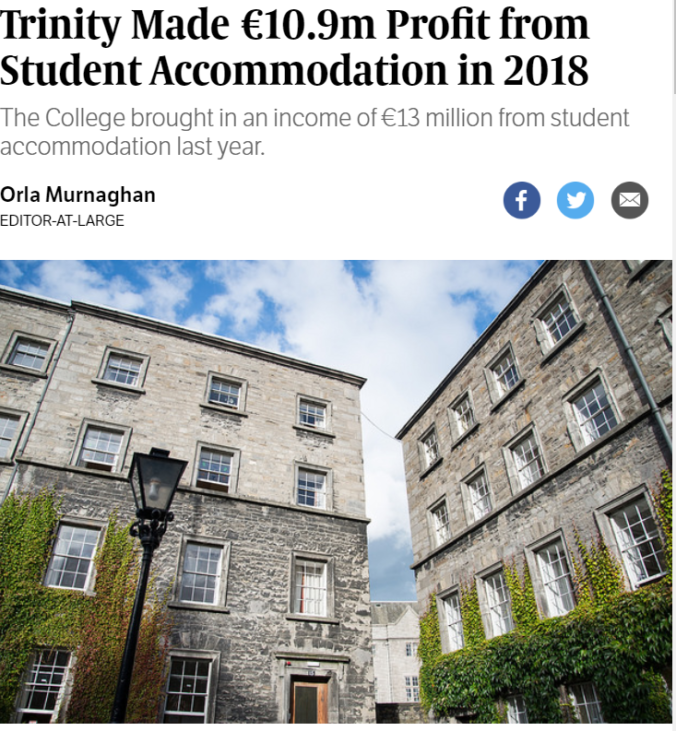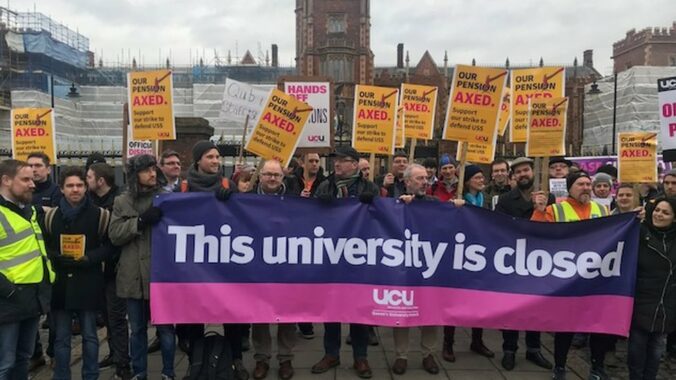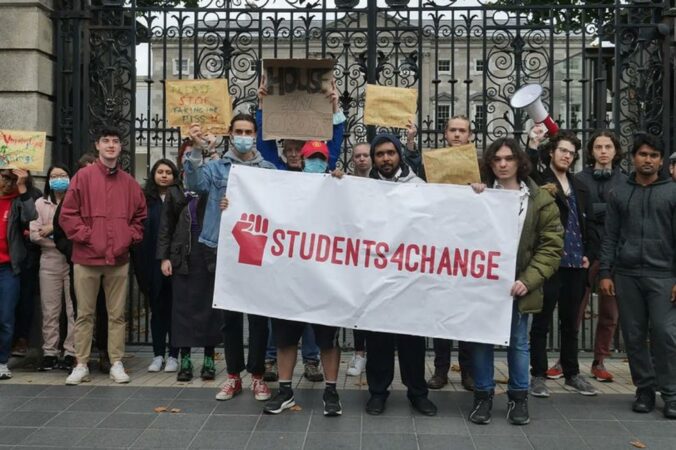
Leftist students for social progress.
Category: TCD (Page 1 of 4)

Trinity accommodation charges extortionate rents of up to €270 plus utilities of €19 a week. Yet, students do not have tenancy rights, nor are they treated like adults by College. We demand that Trinity
- Provide accommodation at an affordable nonprofit rate. Rent should be enough to cover maintenance and repair costs, nothing more.
- Give proper tenancy rights, and not licensee rights to residents.
- Scrap the patronising policies of not allowing overnight guests after midnight and on specific dates.




Do YOU have experience with any of these? We want to hear from YOU and we want YOU to get involved in our campaign. Fill out the survey. United we are strong!
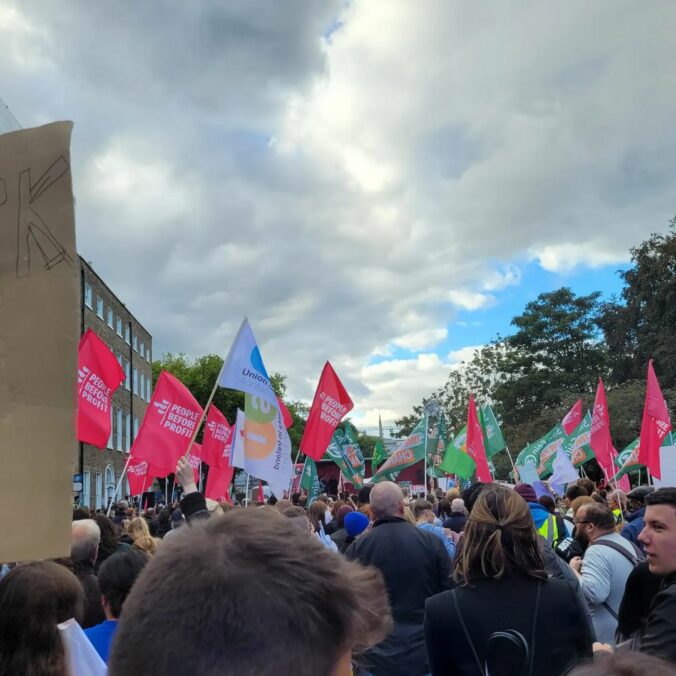
Students4Change attends cost-of-living protests alongside TCDSU, USI, UCDSU, NCADSU, DCUSU and others
Picture: Academics protesting casualization, pension, pay cuts and lack of equality in the U.K (UCU).
Who are precarious staff and what is casualization?
The term precarious staff refers to any university worker who shares insecure working conditions (these could be teachers, tutors, researchers, cleaners, caterers, hospitality or admin staff) that leave them underpaid, vulnerable and living with the constant risk of unemployment. Casualization refers to the casual forms of employment which leave people in this insecure position. It can also refer to outsourcing. For example, in our College estates 20.5% of all cleaning staff are outsourced, and 14.28% of security staff. The University in total has employed over 2,500 staff on casualized, short-term and hourly-paid contracts, leaving them in a precarious condition. When the institution decides to no longer rely upon its casualized workers, it can dispose of them easily.
Staff
Within College our 5,500 postgraduate – of these 4000 masters’ and 1600 PhD students – are akin to workers as they carry out research, teach and tutor. Yet, their contributions are undervalued and underpaid. Many receive some form of stipend, from a funding agency like the Irish Research Council, Science Foundation Ireland or the Health Research Board, others will receive a stipend from the university or their supervisor, while a smaller number receive nothing at all. The underfunded arts, humanities and social sciences are the worst offenders for this, like the School of Creative Arts and the School of Linguistic, Speech and Communication Sciences. These stipends are meagre, with as low as €6.5k stipends advertised at Trinity. On top of stipends, some postgrads receive pay doing casual teaching work, whereas others are required to do unpaid teaching as a condition to receive their stipend, fees and research funding. Often this teaching work can take up hours outside of class time, and when pay is received and averaged out over total hours worked, pay amounts to less than the minimum hourly wage. For example, the pay rates for tutorials range between 28.71€ to 37€ according to Trinity’s policy, but this should be divided by three because there is one hour of preparation, one hour of teaching, and one hour of marking. So, for someone on the 28.71€ scale, this comes out to 9.57€ per hour. In addition, teaching contribution work is not enough to make a living, as there are not enough classes. In some cases, final year fees are foregone in exchange for unpaid teaching contribution, which is regardless of exploitation.
|
School |
Pay |
|---|---|
|
Nursing and Midwifery |
Advertised PhD scholarships with annual stipends of €6,500, which also cover fees for EU and non-EU both. |
|
Medicine |
Advertised PhD scholarships with annual stipends of €6,500, which also cover fees for EU and non-EU both. |
|
School of Computer Science and Statistics |
24€ / hr for the first 78 hours or so and after that 28€ for tutorials. |
|
English |
35€ / hr |
|
Physics |
21€ / hr for a maximum of 50 hours. All stipends are topped up to €18,000 by the School, but due to financial uncertainty, this might be lost. |
|
Chemistry |
Only some of the postgraduates are paid. |
These numbers are based on real-life examples but are indicative. It varies highly according to individual postgraduates because of different income thresholds for funding organisations.
Casualization does not only affect postgraduate students, but also other teaching staff. Within the Irish third-level education sector, the average rate of casualization is 50%, with 80% of all researchers being on temporary contracts. They can be paid less than €10,000 a year. This amounts to around 13,000 staff each year across Ireland. Lecturers can be paid per class (sometimes referred to as ‘hourly-paid’) or they can be employed on 3, 6, or 9 month contracts, which could be one-off or recurring. Finally, they could be employed on temporary contracts of one to three years. The average length of time spent in academic precarity in Ireland is 7.1 years for women and 5.7 years for men. Many workers have endured these conditions for a decade or more, leading to financial difficulties, poverty and stress. During the summer, for example, many are left jobless, but even during the year, the pay is inadequate, there is a lack of worker protections and no job security is guaranteed.
Academic precarity also affects professional staff, through outsourcing, which has been an increasing trend. 80% of the 2,500 casualized staff are employed for lecturing purposes, while the rest are professional workers. Contracted workers are paid less, and outsourcing seeks to undermine staff working conditions and replace them with cheaper alternatives. Here, at Trinity College Dublin, the share of casualized staff stands around 41%. Of these, 60% or so are female, highlighting an element of gender inequality and contributing to the 9% wage gap between men and women within our institution.
During Covid-19 in 2020 and 2021, a total of 18 academics and 11 professional staff were laid off, 2 courses were ended, 1 suspended and 1 merged at College. In the U.K, the pandemic afforded opportunities for institutions to casualize their staff and cut corners. We must organise to ensure we do not end up going down the same path.
How does this impact you?
Staff teaching conditions are student learning conditions. To these teaching conditions, everyone contributes. From cleaners to security to IT services staff, it is of paramount importance that everyone in our community is given the respect they deserve. The casualized approach that our institutions have taken towards members of our College community seriously undermines education and research. The neoliberal university professes to be for social progress, yet eats itself up and becomes the enemy of its own goals. While students are being charged rising tuition fees, and increasing the number of students, it refuses to pay more or increase the number of staff in an effort to cut corners. Similarly, the university has invested in new buildings, such as 80 million euros for Trinity East, but not in the staff that maintains them. More than 60% of College teaching spaces are in need of repair.
As more and more functions are outsourced, there is a hollowing out of the professionalism of Trinity staff in favour of subcontractors. Rather than providing proper employment, Trinity seeks to shirk its responsibilities and save money. Outsourced workers are paid little and do not have the same worker protection as being employed at an organisation, while non-outsourced staff are left wondering about their futures. In 2019, College proposed 75% of all new hires in security, attendant, housekeeping and maintenance to be temporary workers in new buildings, to the outrage of trade unions. In a recently published IT Services survey, the outsourcing of technical support to FittingImage was identified as a barrier to the delivery of digital and online (and thus accessible) learning, highlighting how hiring external contractors (who have little to no idea about how a College is run) as a cost-cutting measure hampers the delivery of services. This agenda contributes to a College environment where our workers are not respected, and we students should stand in solidarity with them.
What can we do?
The intent of this flyer is to raise awareness about casualization and to offer ways in which we students can stand in solidarity with our staff. We link below campaigns that you can support and engage with. We, as the student population of our College, can have a real impact
Within our Schools, we are asking:
Find out more and support the campaigns!




On the above 4 QR codes, 4 different organisations are linked. They are as follows. Irish Precarity Network, PhD’s Collective Action Union, TCD Postgraduate Workers’ Alliance and Non-EEA Ph.D. Students Society Ireland. Students4Change is not affiliated with them.
The Trinity Graduate Students’ Union is also active on campaigning on this front. You can find their website here. Feel free to get involved in any of these organisations.
Where are our sources? We know all this information from the S4C FOI Database, available on our website at students4change.eu !
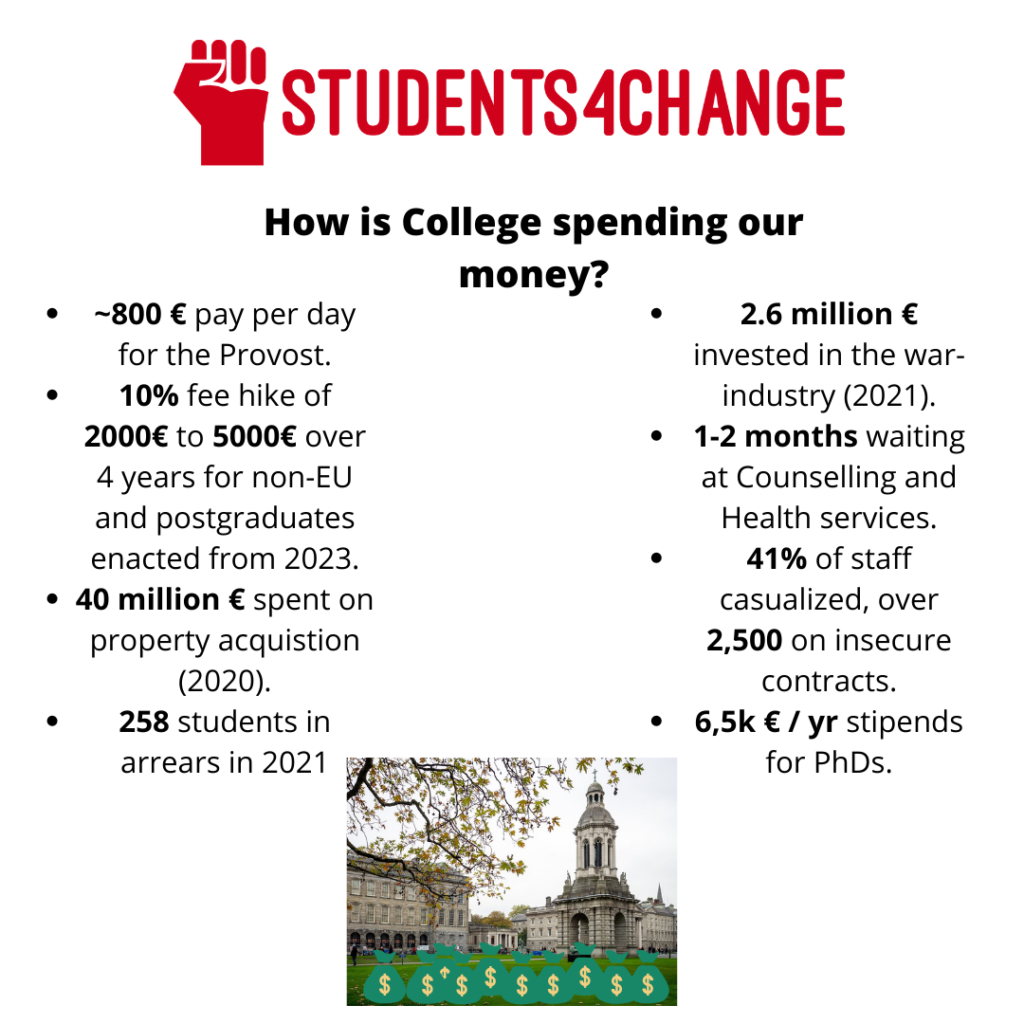

Comment under our Instagram or Twitter post and re-share to win.
Our fight is against the corporatized “productive” education, constant evaluation of efficiency above equity coupled with solidarity to the the workers’ struggle and the democratic deficit of the capitalist system.
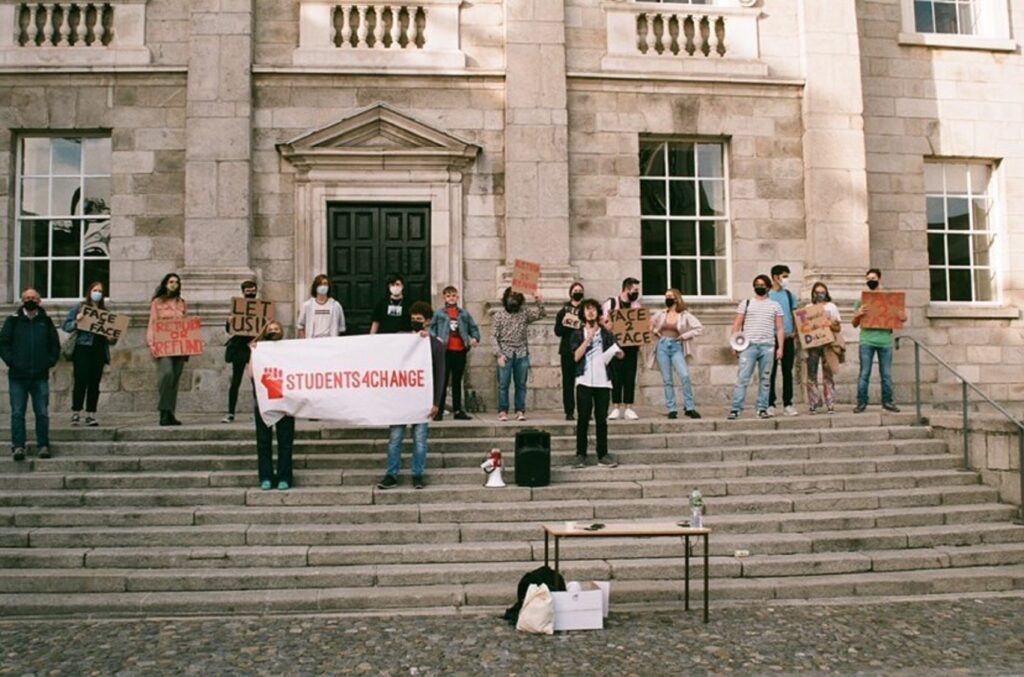

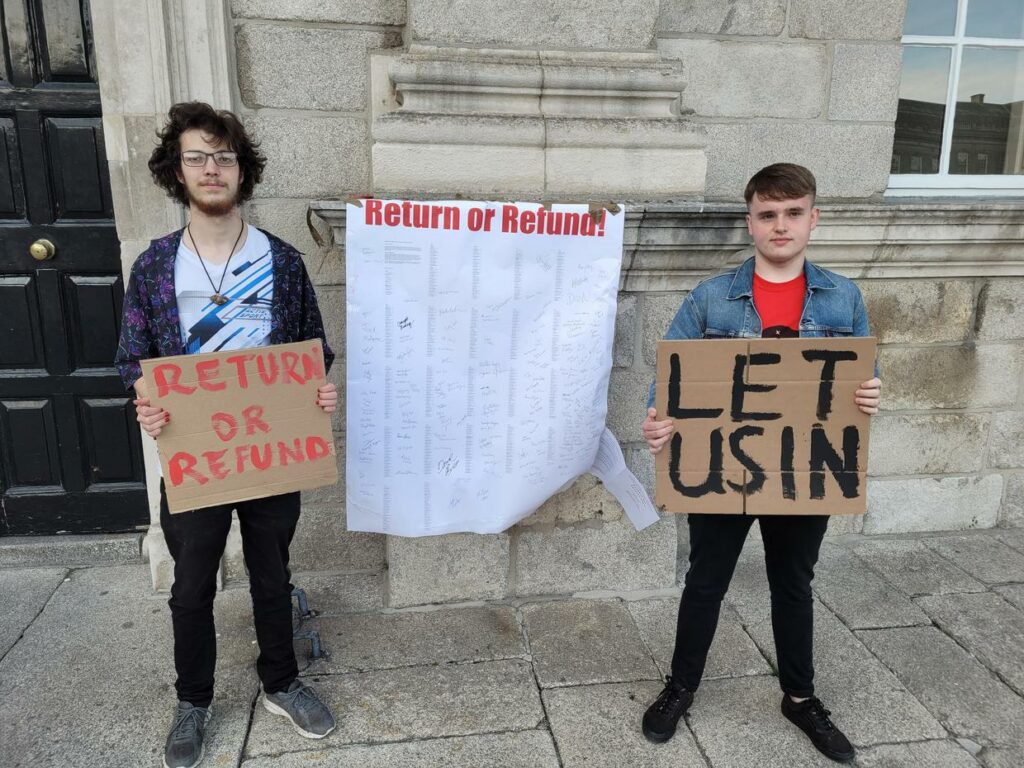
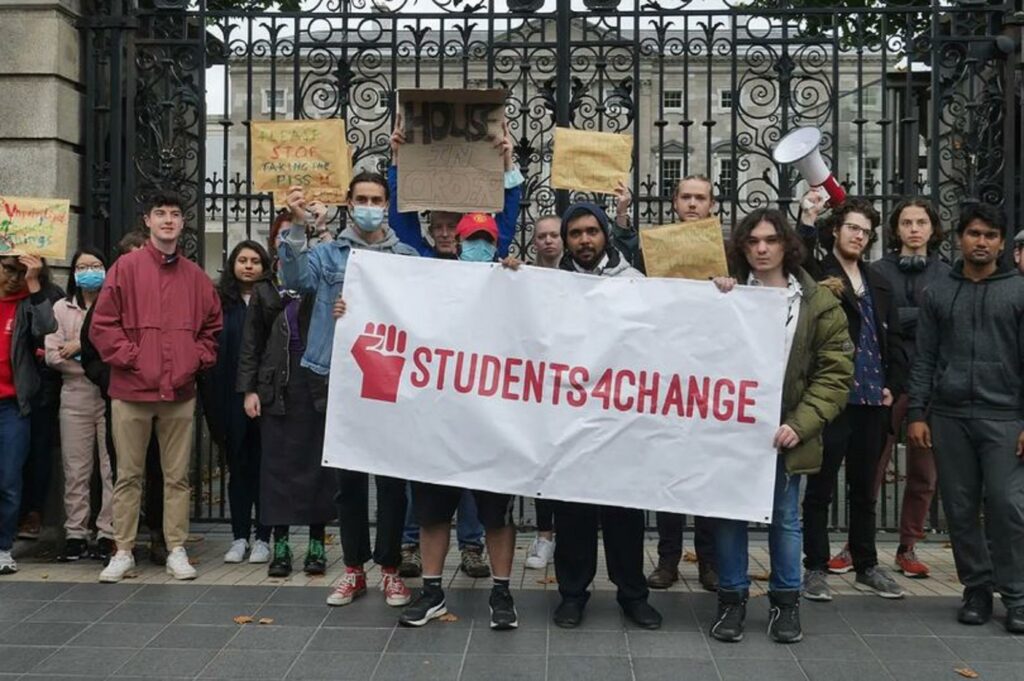
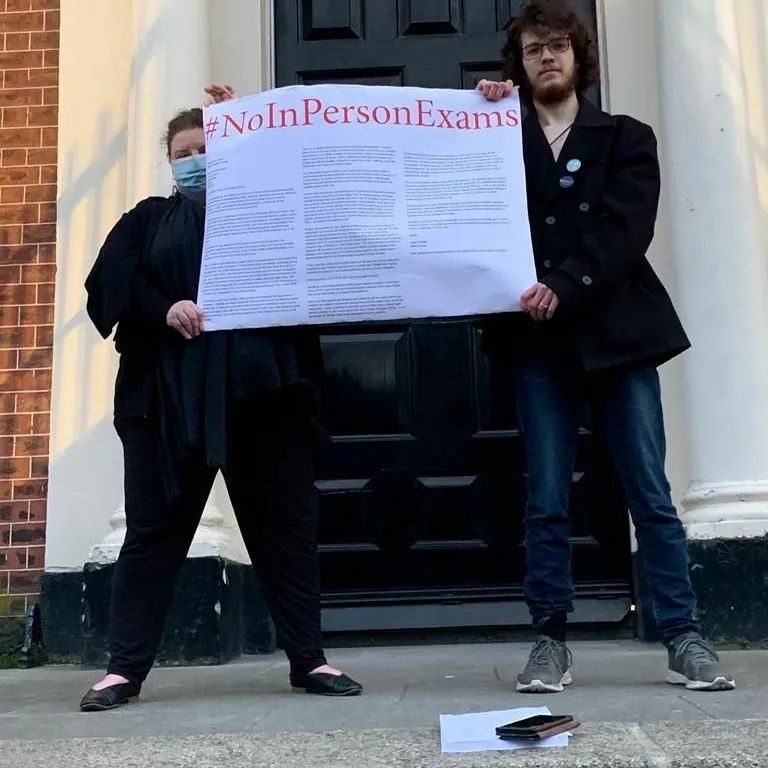
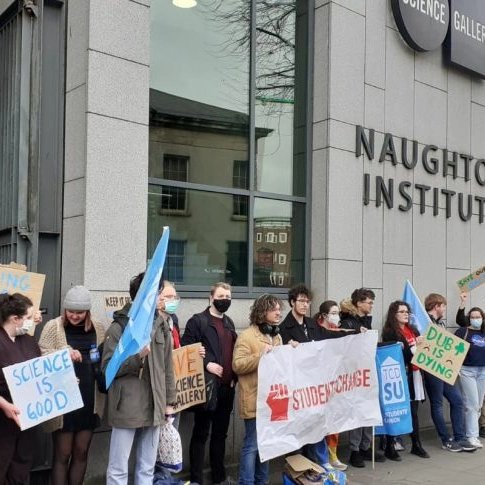
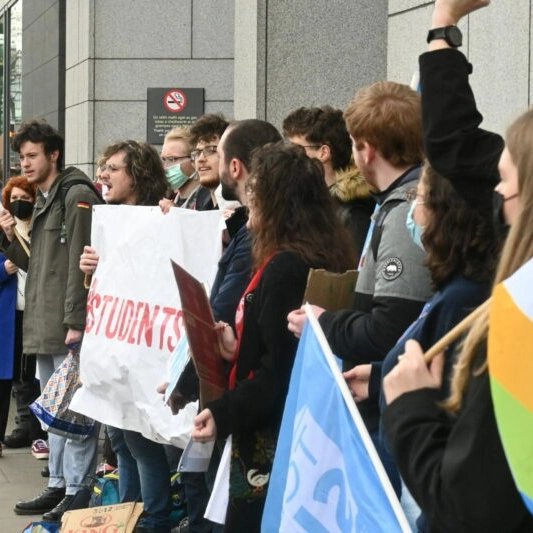
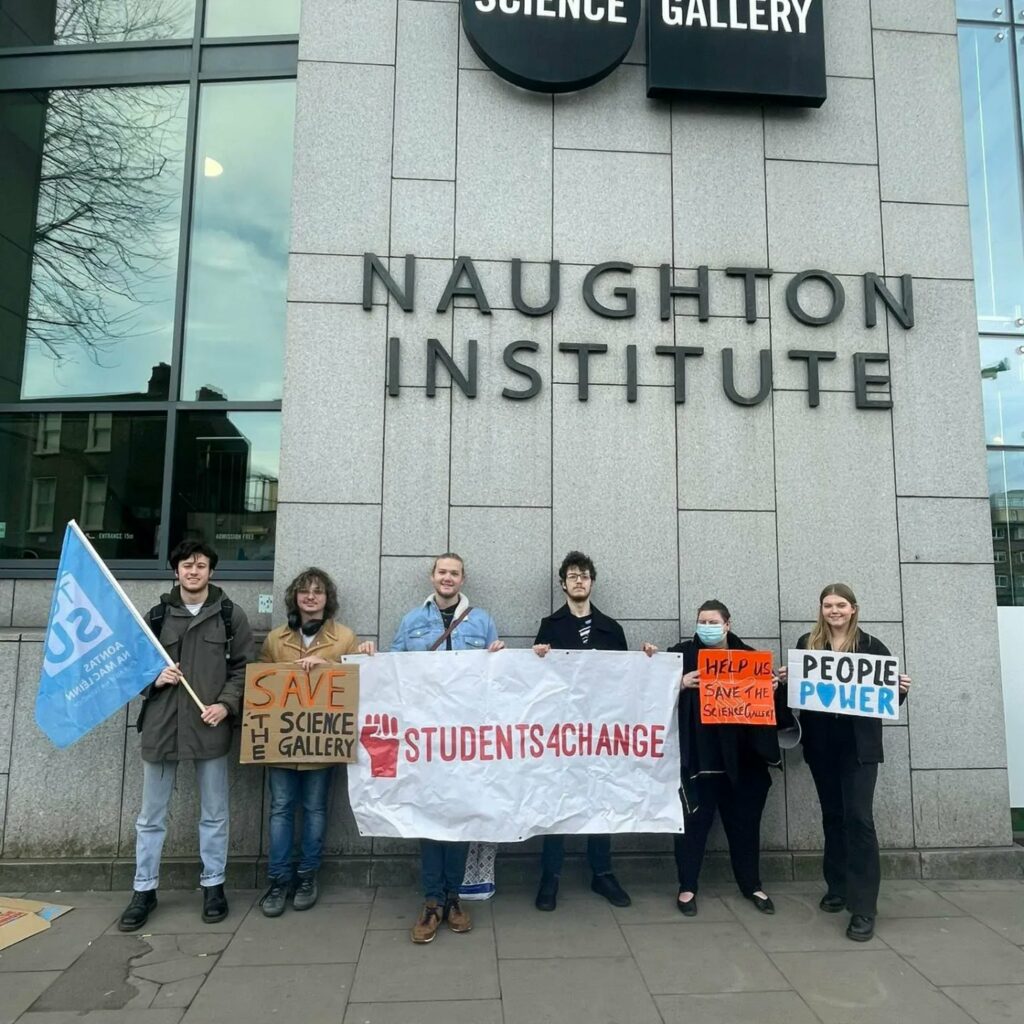
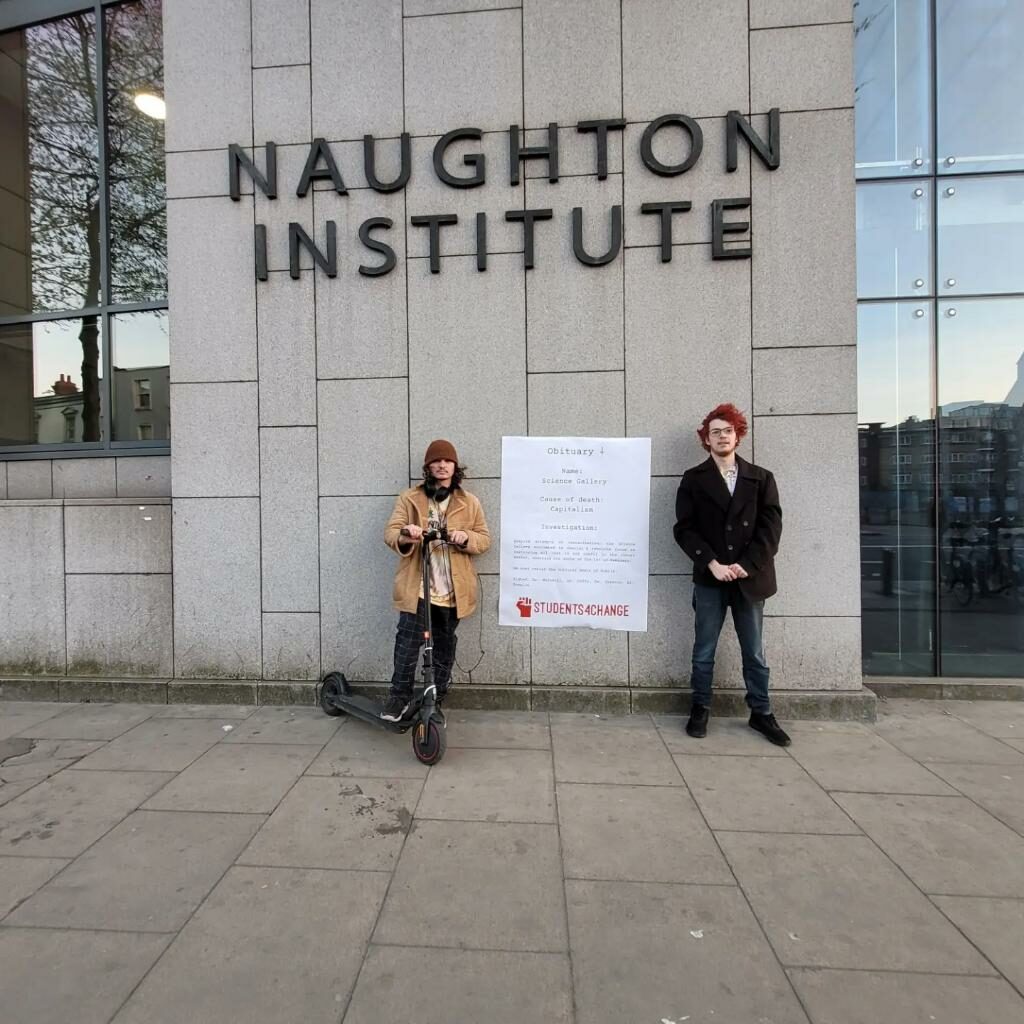
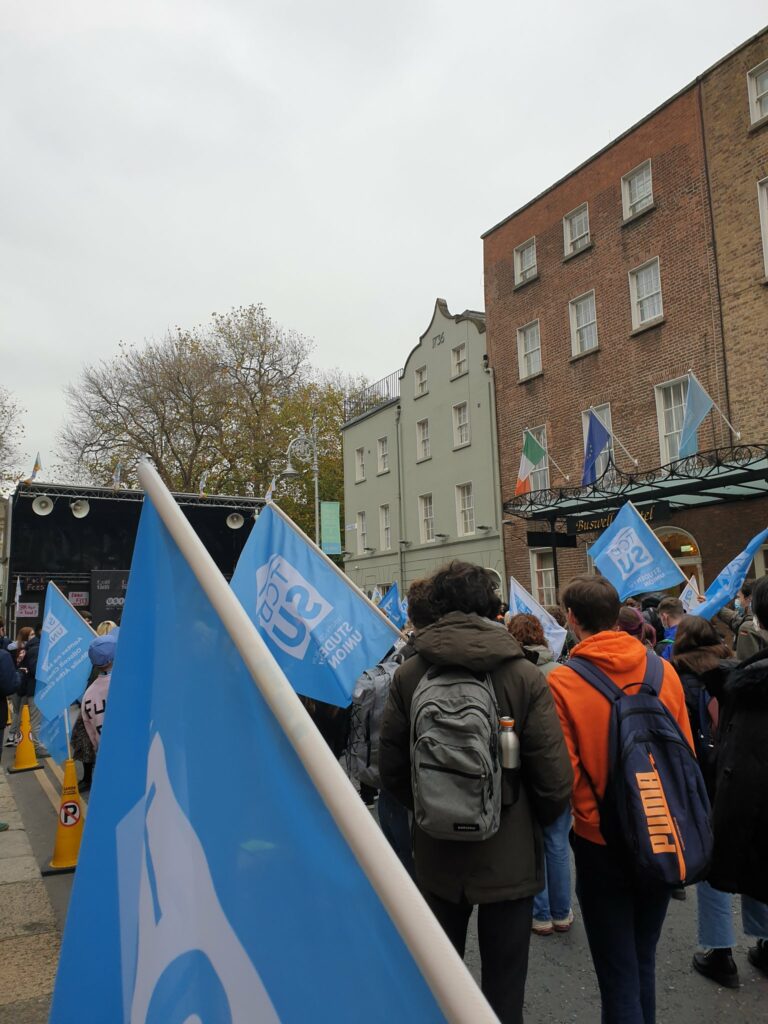

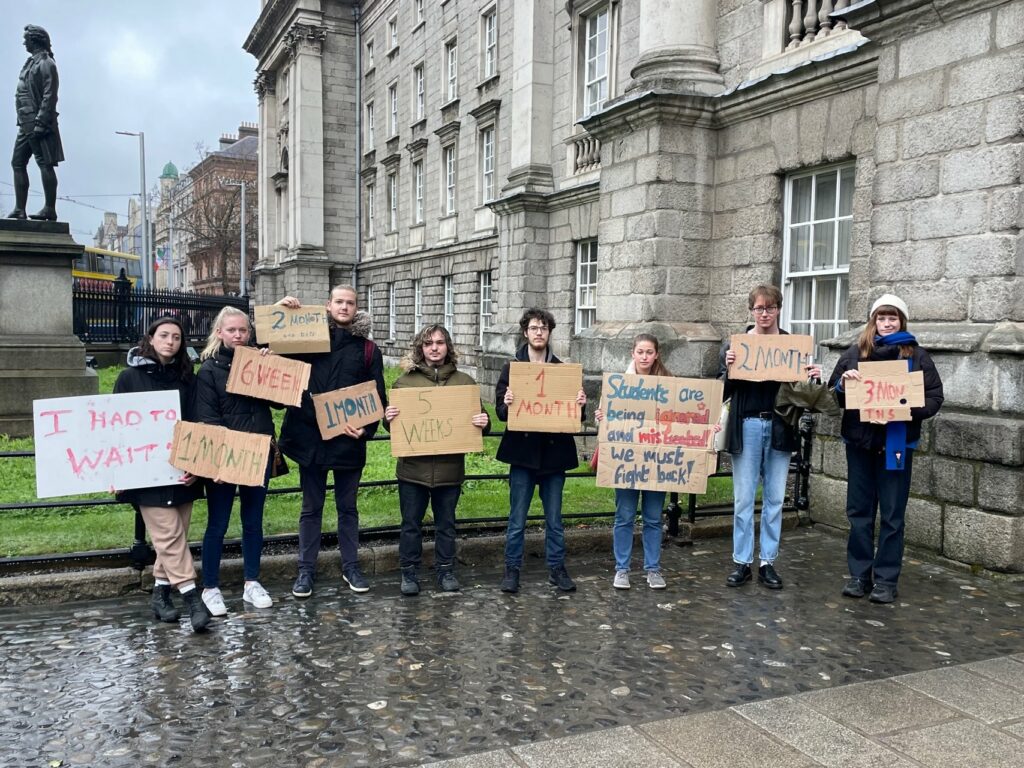
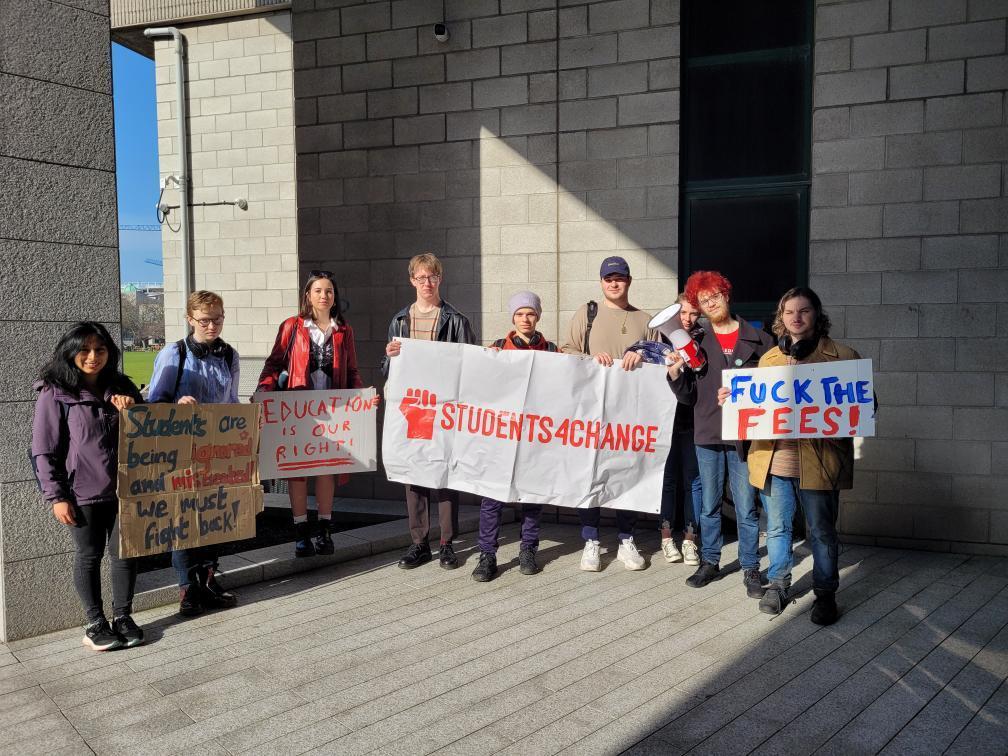

Together with Trinity GSU, TCDSU and others, we fought for the rights of student and staff. With our combined efforts, we managed to, for example, secure a better re-opening while advocating for hybrid learning, reveal investments in the war-industry, stop the structure on College Park and significantly reduce the amount of in-person exams. Onwards to next year!
University league rankings are infused with a corporate ethos that push the neoliberalization of our institutions and seek to pit them against each other in cookie-cutter, numerical categories that reflect nothing about real conditions on-the-ground.
They consider research output as the most important factor.
We might as well be article-producing robots for all it cares.
Such rankings will never consider mental health supports, which lack at our College so severely that it has 40+ days waiting times, the cost of education, which was just increased by 10% for many over a 4-year period, or staff working conditions and casualization.
Neither will they ever consider that during the pandemic, the number of students in fee arrears shot up from around 20 to 250.
We have to call these surveys for what they are.
The QS ranking system can find its place alongside other forms of fake tools.
QQI, the so-called Quality and Qualifications Ireland, cares about quality of education insofar as the bottom line, how financially viable the way institutions run their courses is. They would not recognize that staff working conditions are student learning conditions and would never recommend making them better to improve our education.
StudentSurvey.ie is a corporate survey that pushes the same cookie-cutter logic as QS, and its equivalent the National Student Survey (NSS) is boycotted in the U.K. for corporatizing universities and raising tuition fees.
National Student Engagement Programme (NsTEP), a joint initiative of the QQI, Higher Education Authority (HEA) and the Union of Students Ireland (USI) and other so-called partnerships are fake. While they are taking away student representation on governing bodies of 60% of universities with the HEA Bill 2022, they pretend to “strengthen student engagement in decision-making across Irish higher education”. It is disgraceful.
Such initatives are empty promises on paper, like the Student Partnership Agreement (SPA) at Trinity, which seeks to reduce student representation into mere professionalized inputs into the bureaucratic machine rather than strengthen in so it can challenge the sociopolitical order of the world. It is great PR for those in charge but useless for students and staff.
Unfortunately, the USI and other stakeholders swear by these tools. This is unfortunate. We must have the political vision to imagine otherwise, a world in which it is truly the community voices that matter and not the fake initatives of the corporate world.
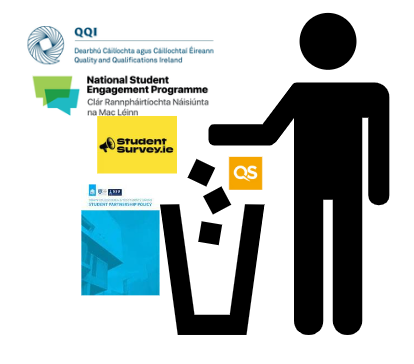
- At a meeting of the Joint Committee on Further Education, student unions through the USI proposed to amend the HEA Bill 2022 to allow 2 to 3 student representatives instead of 2 on governing bodies.
- This way, student unions like TCDSU would not lose that many officers on Board in the time of the aftershock of a pandemic, financial troubles and a mental health crisis.
- Amendment 151 was voted down by 6 to 3. Who is on our side?
Simon Harris – Fine Gael – Wicklow – voted AGAINST.
Alan Farrell – Fine Gael – Dublin Finglas – voted AGAINST.
Paul Kehoe – Fine Gael – Wexford – voted AGAINST.
Jim O’Callaghan – Fianna Fáil – Dublin Bay South – voted AGAINST.
Pádraig O’Sullivan – Fianna Fáil – Cork North-Central – voted AGAINST.
Marc Ó Cathasaigh – Greens – Waterford – voted AGAINST.
Rose Conway-Walsh – Sinn Féin – Mayo – voted FOR.
Donnchadh Ó Laoghaire – Sinn Féin – Cork – voted FOR.
Aodhán Ó Ríordáin – Labour – Dublin Bay North – voted FOR.
We will not forget their actions come election time.
Sign the petition!
#StopHEABill22
This is our “student partnership”. After the recent defeat of the same proposal through the work of TCDSU, GSU and S4C, they kept re-running the vote at Board until they knew opposition would die, or those who dissent would be absent, and their agenda would be pushed through. Disgraceful.
A non-EU international student in Dublin can already be expected to pay around 30,000 to 40,000 euros just for the tuition fee and rented accommodation. That is insane. To have the audacity to further increase this is beyond comprehension. No wonder many leave after they get their degrees.
We know students who are being evicted, who are struggling to pay for groceries, and who are at risk of not getting their degrees due to the tuition fee arrears.
According to an FOI request we filed, the number of students in rent or fee arrears shot up to 250 or so during the pandemic. In the face of this, our College has decided to further push us into precarity. The government’s complicity cannot be understated either, as they transformed our universities into for-profit businesses through decades of underfunding.
As a response, we need to boycott the Student Partnership Agreement, which is nothing but a piece of paper that offers students no protections, but is a great PR booster for College. To this end, we have launched a petition.
We invite the TCDSU to boycott the SPA, not just because of the fees, but because due to the HEA Bill 2022, we will lose the Education Officer and Welfare Officer from the Board in the time of the aftershock of a pandemic. Decisions like this will meet even less opposition. As such, we need decisive action.
We also invite the TCDSU to reconsider their political strategy. They should have organised a pre-emptive protest if they knew the 2.3% fee increase was imminent. However, they didn’t tell the union members, S4C, the GSU (who were ill at the time), or the press.
We need to revisit our political strategy because what we are doing isn’t working.
Sign the petition!
The fee increase is a 2.3% over a 4-year period, with a fee freeze in 2022-2023 but starting in 2023-2024.
© 2025 Students4Change
Theme by Anders Noren — Up ↑
